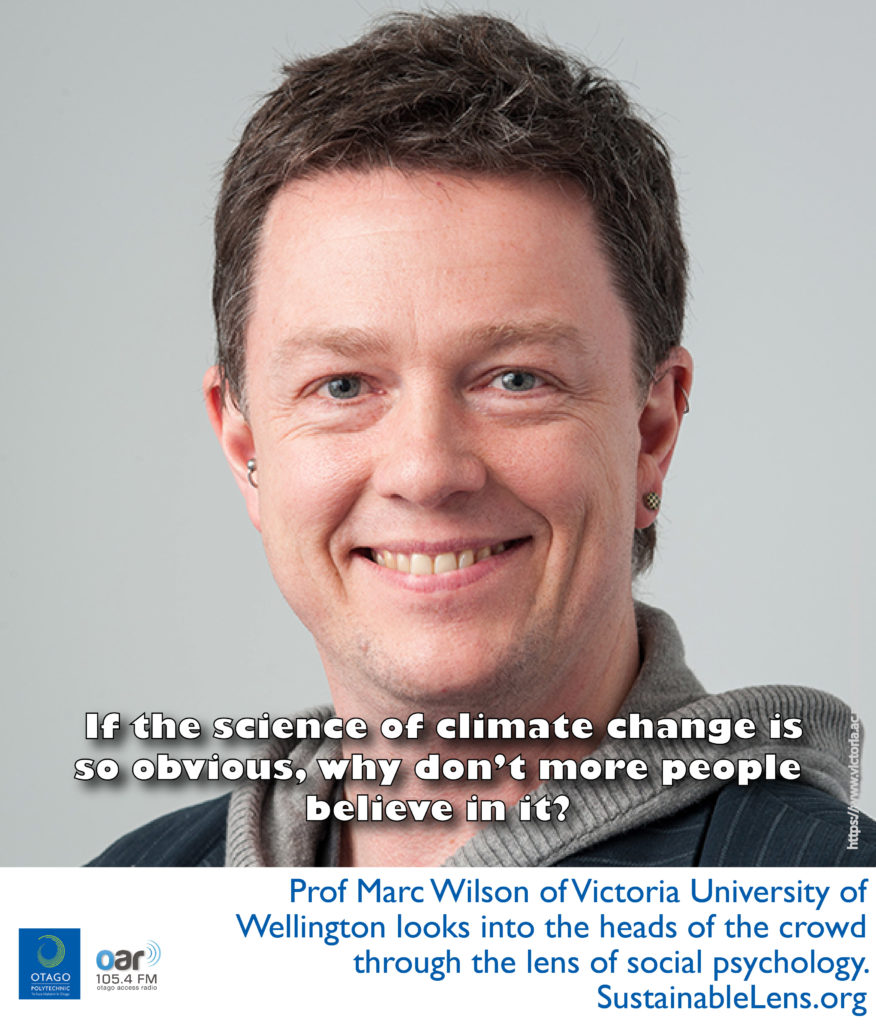
We talk with Prof Marc Wilson of Victoria University of Wellington. Why is there such a gap between science and people who don’t believe in climate change? Psychology. Marc says that what we believe, we believe for a reason, and in this case a lot of disbelief can be linked to views on hierarchy versus equality, and orientation to authority. And this leads to entrenched positions that can’t be overcome with more facts. He says that we’ve probably saturated the market of people who will be convinced by facts.
So how can we make a difference? Marc points to changing the way we communicate “what kind of world do you want to live in in 50 years?”.
Marc is encouraged by the crowds that turned out for School Strikes for Climate. He says the very act of coming together with like-minded people is an accomplishment. Despite criticism, marchers shouldn’t feel guilty because they are carrying a mobile phone, or wearing a plastic jacket – they are part of systems that will take a long time to change, and that calls for perfection are intended to be dis-empowering. So rather than aiming for perfection, it is OK to aim for good.
Definition: Language of sustainability has been misused. Need to describe in terms of passion and energy.
Success: Students
Superpower: Tenacity, thick skin (Brian Dixon says he should have said communicator).
Activist: Increasingly. Did think that soience had to be objective, but now realises that everything is value-laden and to pretend otherwise is to do science a disservice.
Motivation: Sense of obligation. But not hard as every day exciting and different. We (university) everything has to change because the students do.
Challenge: Ongoing research into adolescent self-harm
Miracle: Emotional skills curriculum
Advice: Aim for good.
Marc was in Dunedin to speak as part of NZ Psychology Week “Living Life Well”. His talk The Elusive Climate Consensus:If it’s so obvious, why doesn’t everyone believe (or not) in climate change?
